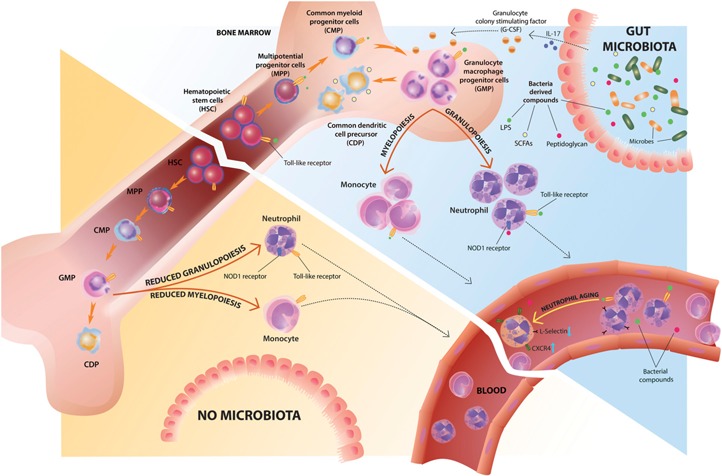Figure 1.

Microbiota regulation of steady‐state myelopoiesis and neutrophil homeostasis. HSPCs and myeloid progenitors express PRRs that enable them to sense bacteria‐derived products directly. Commensal‐derived signals modulate myelopoiesis, mostly by affecting GMP frequencies and differentiation potential. The gut microbiota promotes granulopoiesis, at least in part, through the local induction of IL‐17 production and increased plasma levels of G‐CSF. The absence of gut commensal microbiota leads to reduced numbers and differentiation potential of GMPs, leading to reduced neutrophil, monocyte, and macrophage numbers in the BM and peripheral tissues. Bacterial metabolites, such as SCFAs, modulate DC differentiation by increasing the numbers of CDPs. Commensal microbes also regulate neutrophil function in the BM through direct recognition of microbial‐derived peptidoglycan via the Nod1 receptor. Circulating neutrophil aging is driven by microbiota‐derived signals via TLR/MyD88 signaling, and absence of commensals leads to reduced numbers of CXCR4hi/L‐Selectinlow‐aged neutrophils in circulation.
